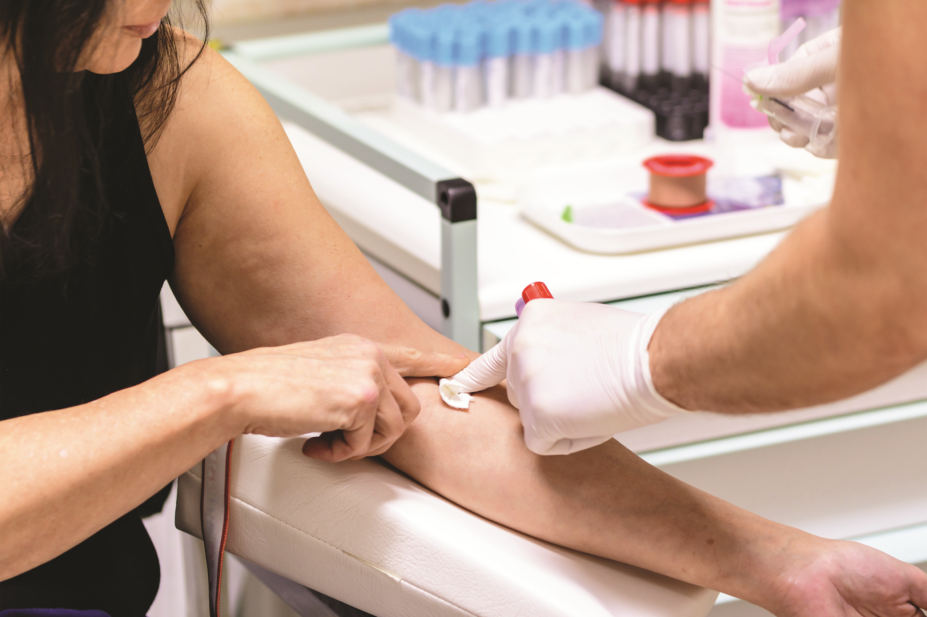
Shutterstock.com
Phlebotomy services should be run from community pharmacies to allow patients to give blood samples without having to go to hospital, an independent review of NHS diagnostic services has recommended.
The report, which was led by the former Care Quality Commission chief inspector of hospitals, Sir Mike Richards, was commissioned by NHS England and NHS Improvement to review diagnostic services as part of the ‘NHS long-term plan’.
The report was nearing publication when the COVID-19 pandemic began and has since been updated to include additional actions that are needed to deliver safe, high-quality diagnostic services in an “endemic phase” of the disease and to support the recovery of diagnostic services.
‘Diagnostics: recovery and renewal’ outlines five key actions, including the recommendations that community diagnostic hubs (CDHs) should be established away from acute hospital sites to keep them “as clear of COVID-19 as possible”; that diagnostic services should be organised so that, as far as possible, patients only have to attend once; and that community phlebotomy services should be improved, so that all patients can have blood samples taken close to their homes, at least six days per week.
According to the report, access to community phlebotomy services “varies widely”.
“In some CCGs [clinical commissioning groups], these are available at GP practice level for five or six days a week with twice daily courier services, while in others they are only available once a week for very limited hours,” it says, adding that the provision of easily accessible services, which can take referrals for blood tests from both primary and secondary care, will promote convenience for patients and avoid patients having to visit acute hospitals.
“It is essential that these services are provided in the community and outside hospital settings. These could also be provided in a range of locations, including GP practices, high street pharmacies and CDHs,” the report continues.
Alastair Buxton, director of NHS Services at the Pharmaceutical Services Negotiating Committee, said that some community pharmacies already provided phlebotomy services, and, “subject to appropriate additional funding being provided by the NHS”, many contractors “may be interested” in providing access to such a service from their premises.
Leyla Hannbeck, chief executive of the Association of Independent Multiple Pharmacies, said that the “biggest challenge” facing the NHS since 2014 was access and waiting times.
“Community pharmacy, if utilised in a more radical way, could greatly improve system pressures, so yes, phlebotomy provision would be an essential prerequisite if we want to walk the talk.
“Fair and realistic funding must accompany such programmes, and not re-engineering of the global sum,” she added.
The report said that wherever the service was provided, phlebotomists should be “appropriately trained” and have access to a dedicated room with the necessary equipment and access to personal protective equipment.
“The pandemic has brought into sharper focus the need to overhaul the way our diagnostic services are delivered,” said Sir Richards.
“While these changes will take time and investment in facilities and more staff, it is the right moment to seize the opportunities to assist recovery and renewal of the NHS.
“Not only will these changes make services more accessible and convenient for patients, but they will help improve outcomes for patients with cancer and other serious conditions.”


